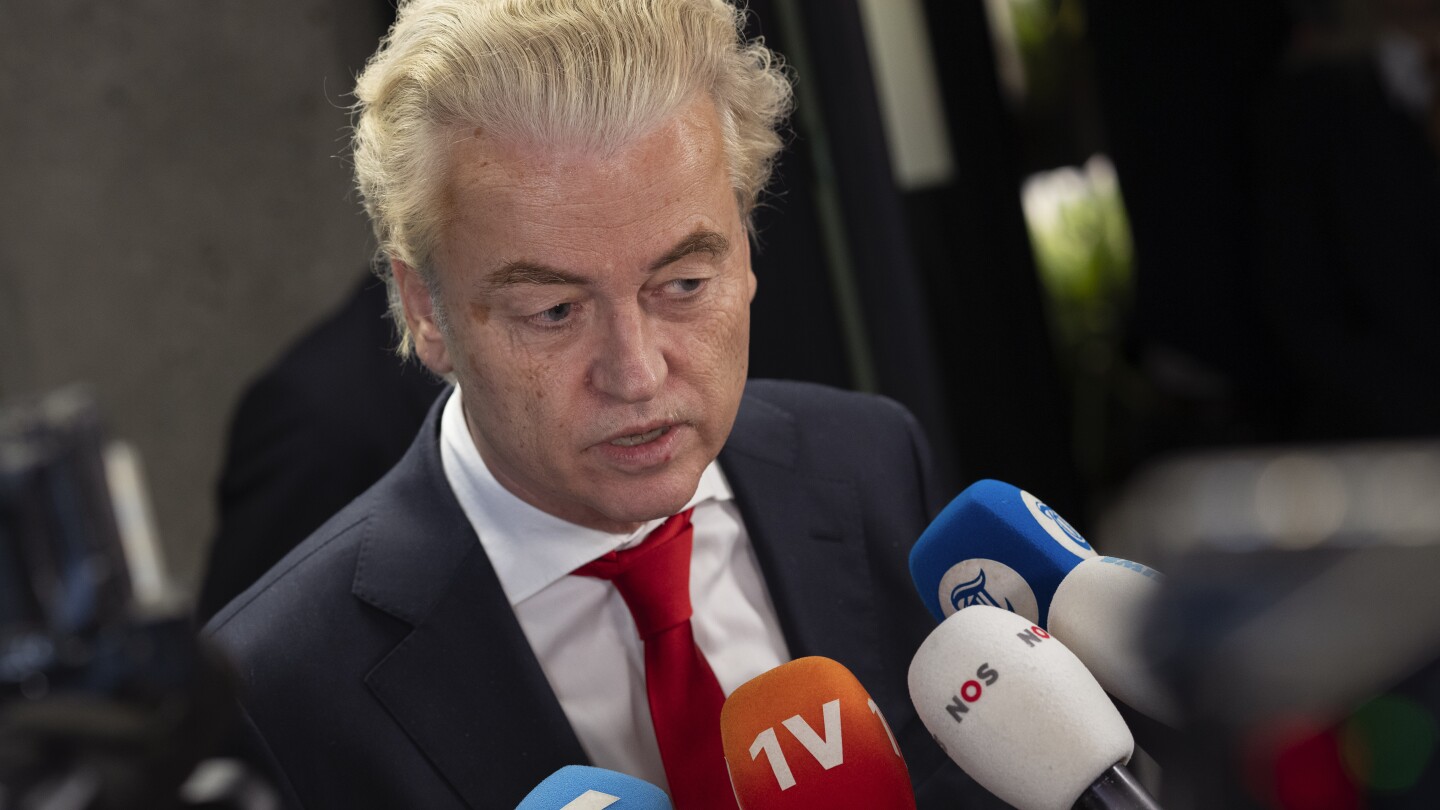THE HAGUE, Netherlands (AP) — Anti-Islam firebrand Geert Wilders and three other Dutch political leaders appear to have forced a breakthrough in negotiations to form a new ruling coalition nearly four months after his far right party won a stunning election victory.
While the exact contours of a new coalition Cabinet remain unclear, designated go-between Kim Putters, who led two days of closed-doors talks, believes that the parties are now ready to hammer out a deal. Putters was writing up a report Wednesday that he will present to lawmakers on Thursday.
“My expectation is that these parties will take the next step in the Cabinet formation,” Putters told reporters Tuesday night. After two decades of trenchant opposition, Wilders would have a shot at governing a nation that long prided itself on its tolerant society.
The rise of the populist far right in a polarized political landscape has been underway for years in Europe but Wilders’ victory in the Nov. 22 election still came as a shock to the Netherlands and well beyond.
Wilders has often called for a ban on mosques, Islamic schools and the Quran, but in a concession to his prospective coalition partners in January, he withdrew draft legislation to implement the bans.
The Netherlands is not alone in seeing a shift to the right.
Far right parties also are expected to make significant gains in June elections for the European Union’s parliament and Portugal’s inconclusive result in Sunday’s election thrust the populist Chega — or Enough — party into a possible kingmaker’s role. Chega’s leader, Andre Ventura, has made common cause with other right-wing parties across the continent.
Wilders spent Monday and Tuesday in talks with Putters, and the leaders of the center-right People’s Party for Freedom and Democracy, populist Farmer Citizen Movement and centrist New Social Contract.
“They were good talks and produced results. I have drawn my conclusions,” Putters, a former Senator for the center-left Labor Party, told reporters. Once lawmakers have digested his report, they will hold a debate week to decide what happens next.
Wilders did not speak to reporters after the two-day meeting wrapped up, nor did Dilan Yeşilgöz-Zegerius, the new leader of the People’s Party for Freedom and Democracy, or VVD, who replaced four-term Prime Minister Mark Rutte.
With New Social Contract leader Pieter Omtzigt ruling out joining a majority Cabinet led by Wilders, the four parties now will likely look at other options — a Cabinet made up of experts and politicians or a minority Cabinet propped up by support from Omtzigt’s party.
The Netherlands could turn to Italy for a model of how to move past its political stalemate. Italy, which is known for its revolving-door governments, has a history of resorting to “technical” governments headed by figures outside the political party mainstream. These experts are called on to guide the country through a particular period, often due to economic instability or political gridlock, before fresh elections are held.
The most recent such government was headed by Mario Draghi, the internationally respected former European Central Bank chief who was called on to shepherd Italy through the second half of the COVID-19 pandemic, reboot economic growth and make sure the country was able to take full advantage of the EU’s COVID-19 recovery funds.
Despite his broad-based support, Draghi’s coalition of national unity collapsed in July 2022 and fresh elections were called that were subsequently won by Premier Giorgia Meloni of the far-right Brothers of Italy and her right-wing allies.
____
Associated Press writer Nicole Winfield in Rome contributed.

